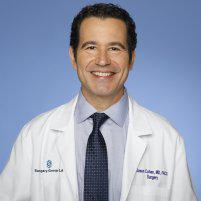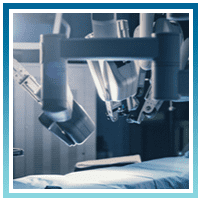Minimally Invasive Surgery Specialist

Jason S. Cohen, MD, FACS
General & Advanced Laparoscopic Surgeon located in Beverly Grove, Los Angeles, CA
Though new advances in surgery continue to appear on the scene, nothing has revolutionized the field quite like minimally invasive surgery, which performs to high standards while causing significantly less trauma to your body. As a specialist in minimally invasive surgery, Jason Cohen, MD, FACS, in Beverly Hills, California, has extensive experience using minimally invasive techniques for the full range of general surgery procedures. To learn if you’re a good candidate for minimally invasive surgery, call the office in Los Angeles or book an appointment online.
Minimally Invasive Surgery Q & A
What is minimally invasive surgery?
When you have minimally invasive surgery, Dr. Cohen performs your procedure using very small incisions. The surgical instruments are specially designed to fit through a small incision, yet they’re capable of performing every type of procedure, from removing a tissue sample to suturing tiny structures in your body.
In some cases, instruments are inserted through a channel in the laparoscope, requiring just one incision. Other surgeries require several incisions to accommodate the instruments.
The most important instrument used during minimally invasive surgery is the laparoscope, which contains fiber-optic lighting and a video camera that sends magnified images to a monitor. Dr. Cohen views the surgical site on the monitor while manipulating the other surgical instruments from outside your body.
What procedures are performed using minimally invasive surgery?
Most surgeries that once required open surgery can now be performed with minimally invasive surgery. These are a few examples:
- Hernia repair
- Thyroid surgery
- Parathyroid surgery
- Gallbladder surgery
- Acid reflux repair
- Spleen surgery
- Colon surgery
- Small intestine surgery
Dr. Cohen performs most general surgery using minimally invasive procedures.
What are the benefits of minimally invasive surgery?
Minimally invasive surgery causes less tissue damage and trauma, thanks to tiny incisions and small surgical tools that can reach tight areas inside your body without affecting the nearby tissues. The fact that your muscles don’t need to suffer an extensive incision makes a big difference in your recovery following surgery.
By comparison, traditional open surgery requires a long cut through skin and muscles. Then the tissues are pulled back enough for the surgeon to see the surgical site and use their hands to perform the procedure.
The benefits of minimally invasive surgery include:
- Less pain after your surgery
- Lower risk of infection
- Reduced blood loss during surgery
- Quicker recovery time
- Minimal scarring
- Shorter hospital stay
Another significant advantage is that Dr. Cohen can perform some minimally invasive procedures on an outpatient basis, so you don’t have to stay overnight in the hospital. When hospitalization is required, however, your total time in the hospital is less than open surgery.
If you need to have surgery, and you’d like to learn more about minimally invasive surgery, call the office of Jason Cohen, MD, FACS, or schedule an appointment online.
SERVICES

Thyroid & Parathyroid Surgery

Minimally Invasive Surgery

Surgical Oncology

Robotic Surgery

Breast Cancer Surgery

